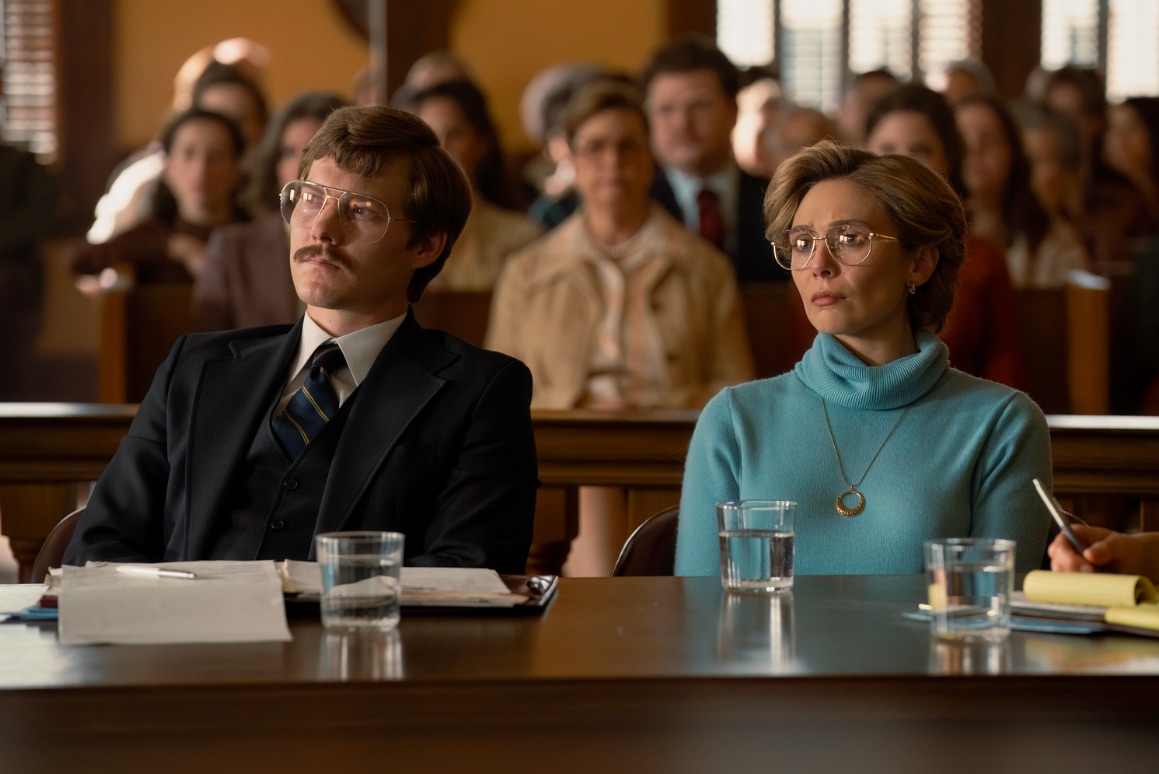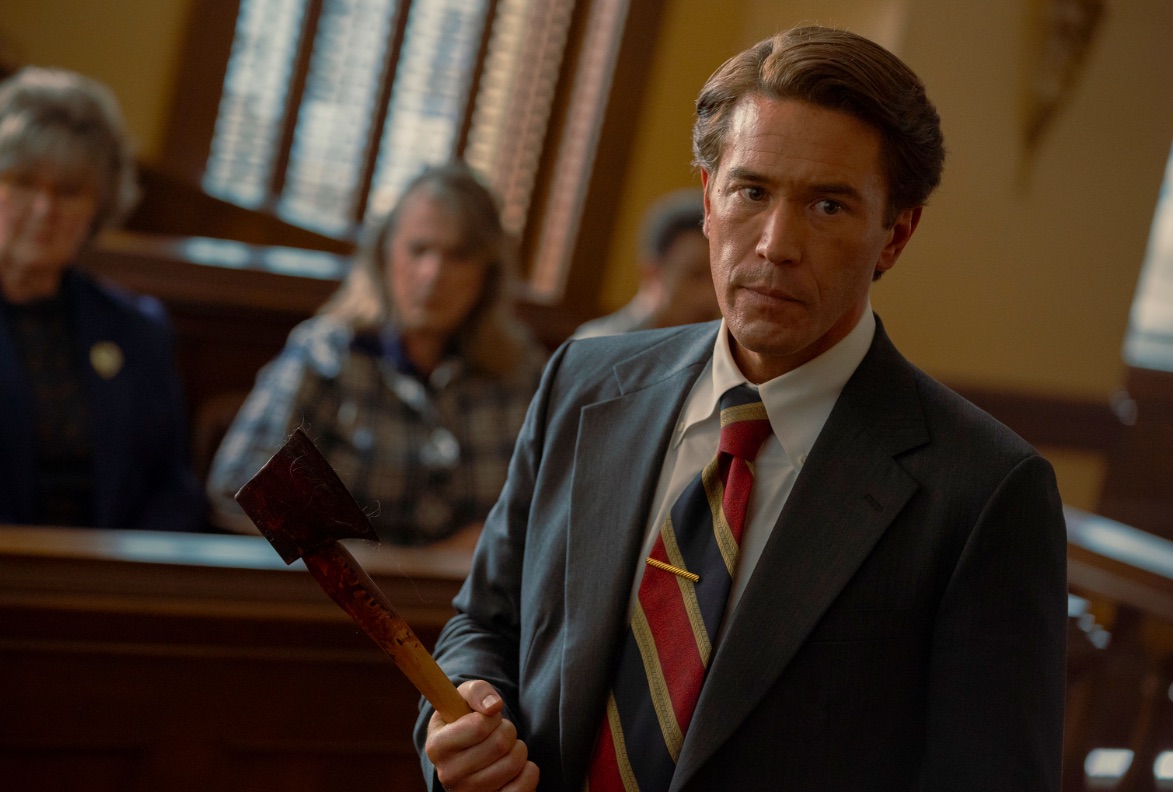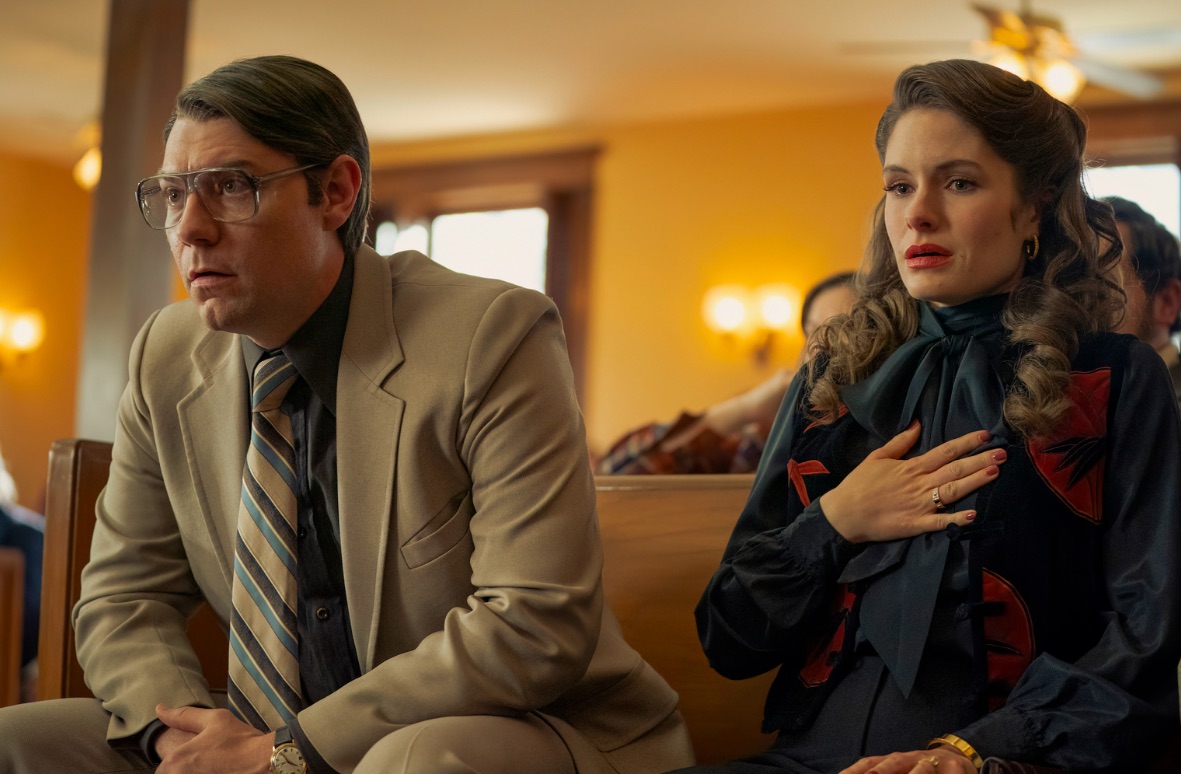HBO Max’s ‘Love and Death’ ends with its seventh episode, bringing Candy Montgomery’s trial to an end. Even though the audience knows how it’ll turn out, the episode keeps us intrigued till the end, especially as Candy takes the stand to reveal what happened the morning of June 13, when she killed Betty Gore with an axe. While the show focuses on how the real-life trial turned out, it also teases the audience with the question that has lingered in everyone’s mind since Candy’s lawyer claimed self-defense in court. Was it really self-defense, or was it something else? Here’s what the final episode says about it. SPOILERS AHEAD!
Love and Death Episode 7 Recap

Candy Montgomery begins her testimony as Don Crowder takes her through the events of the day she stepped into Betty Gore’s house. Candy says she had no intention of killing Betty that morning, and it wasn’t until Betty confronted her with an axe that Candy started to worry about her life. She recounts the whole day in detail, talking about their conversation about the affair and how Betty attacked her.
Then comes the “shh” part and how Candy snapped. Don brings in Dr. Fred Fason to testify about his session with Candy and the connection that “shh” formed between her past and the murder. Dr. Fason sheds light on Candy’s psyche, talking about the event that happened when she was four years old and how her mother forced her to repress her emotions, eventually leading to the build-up that exploded in her confrontation with Betty.
Moving on from them, Don has Pat Montgomery and other church members testify in court. Pat reveals that he has forgiven Candy about the affair and stands by her side in the aftermath of Betty Gore’s death. The members of the church and the pastor talk about the kind of person Betty was, and Don uses it to create an unpleasant image of Betty Gore. Don also spends a night in prison after an altercation with the judge, who holds him in contempt of court. Meanwhile, Candy has a dream in which her mother gives her a knife, and Candy has blood on her hands.
Love and Death Finale Ending: Why was Candy Montgomery Found Not Guilty?

All evidence in Betty Gore’s murder pointed towards Candy Montgomery, and her lawyer knew that he could never fight the truth. He couldn’t twist it into lies and try to tell the people that, despite everything the evidence says, Candy did not kill Betty Gore. When Candy confessed to him, Don Crowder knew the only way out was to cling to the truth. He knew that even a single lie would turn the jury against Candy, and she would have to spend the rest of her life in prison.
Don’s objective was to prove that Betty Gore’s murder was not premeditated but an act of self-defense. The mess at the crime scene and the trail of evidence left behind were good enough to prove his point, but he needed the jury to feel sympathy for Candy to rule in her favor. They couldn’t accept self-defense with 41 blows to the victim’s body. They needed to know why Candy did what she did, so he makes her testify, and it works.
Throughout the trial, Candy didn’t show any emotions, and Don knew that to sympathize with her, the jury needed to see Candy exhibit guilt and regret. He wanted her to break down in front of them, so he brings the bloodied axe in front of her. As expected, Candy is repulsed by it and starts to cry. Then comes the story about her childhood and the psychiatrist’s testimony about why she snapped. While he reiterates that this doesn’t mean Candy has a mental illness, he does emphasize that snapping could happen to anyone, and during that time, they lose a complete sense of self. Through this statement, Dr. Fason relieves Candy of the responsibility for the murder. And perhaps, that’s what the jury latched on to.

Another thing that Don did was to get Pat to testify in Candy’s favor. He points out that the Texan jury can forgive murder but can’t forgive adultery. Candy’s affair with Allan was at the root of the whole thing, and being the other woman, the jury would think that she killed Betty to get Allan. To counter this, Don focuses on how Candy and Allan’s break-up was amicable and that there were no hard feelings between Candy and Betty before that day.
This point is driven home by Pat, who takes responsibility for Candy’s affair, revealing that it was more about companionship than sex. In the jury’s mind, if her husband forgave her, then who were they to hold her in contempt for the affair? Furthermore, Don also has Betty painted as the bad guy who had it coming. The pastor and other churchgoers testify that Betty Gore was rude and unwelcoming, shifting the blame for the affair on her. Perhaps, Allan was stuck in a bad marriage and was attracted to Candy because she was kind and friendly, while his wife was cold and vile.
In their final statement, the prosecution talks about Candy’s lies. How easy it was for her to lie in the aftermath of what happened to Betty. If she could lie so easily to the people she’d known her whole life, she could lie to the jury too. It is also pointed out that Candy had every opportunity to create a version of the story that would paint as innocent. She had heard everyone’s testimony in the court and knew exactly how to manipulate the story in her favor. It is also pointed out that Candy’s testimony was her version of events, and we’ll never know whether it lines up with the truth because we can never hear the other version of the story.

It is impossible to know what was going on in the jury’s mind at that time, but Candy Montgomery was found not guilty. The technicality of the charges is to be kept in mind here because Candy was not standing trial for whether or not she killed Betty Gore, but whether the murder was premeditated or self-defense. Whether it was because Don’s tricks worked, the prosecution didn’t make a stronger case, or perhaps something else, but in their eyes, Candy killed Betty in self-defense.
Before the verdict comes out, Pat tells his wife that the jury can’t declare that she is innocent. They can only declare her not guilty. There is a difference because whether or not they decide whether the murder happened in self-defense, the people around them will never forget that the murder happened. The arguments and testimonies in court rely on legal technicalities, but in the general public’s mind, Candy will be guilty of killing Betty. He suggests they leave Wylie, and eight days after the verdict comes out in Candy’s favor, the Montgomery family leaves town and moves to Georgia.
Read More: Was Candy Montgomery on Medication During the Trial?


You must be logged in to post a comment.